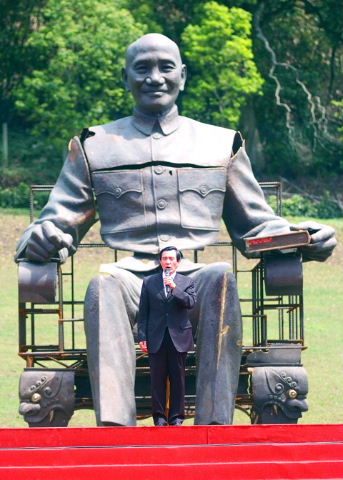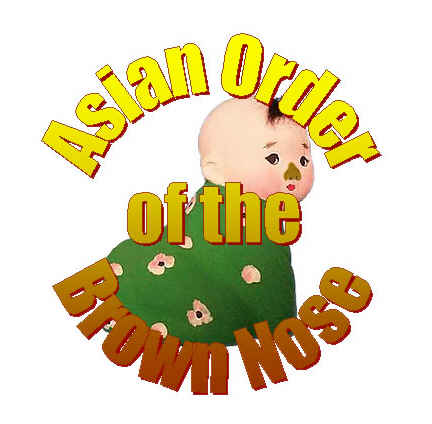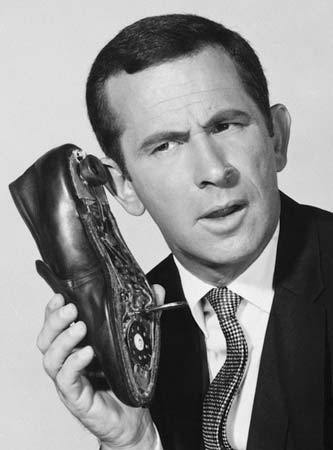I'll confess the Diane Lee dual citizenship issue didn't really interest me much when I first read about it. Must have scanned it too quickly, I guess:
The [Taiwanese] legislature yesterday approved two proposals to probe the nationality of all lawmakers and government officials, following recent queries by the Democratic Progressive Party (DPP) over Chinese Nationalist Party (KMT) Legislator Diane Lee's (李慶安) US citizenship status.
[. . .]
The two initiatives were proposed in March after the Chinese-language Next Magazine accused Lee of having US citizenship, a claim that she denied.
Article 20 of the Nationality Act (國籍法) prohibits anyone with foreign citizenship from holding a government position [in Taiwan].
Any lawmaker or government official found to have dual citizenship would be relieved of his or her job and forced to return his or her salary.
Lee has said she obtained permanent residency in the US in 1985 and citizenship in 1991, but gave up her US citizenship after becoming a public official.
She has also cited Section 349(A)(4) of the US Immigration and Nationality Act, saying that she had lost her citizenship when she began to serve as a public official and took an oath of allegiance in relation to the job.
If Lee were found to be a US citizen, she would be required to give back all the salary she received as a Taipei City councilor between 1994 and 1998 and as a legislator since 1998, an amount estimated to be NT$100 million (US$3.29 million).
She'd have to give back $3.29 million? Whew, now THAT'S a chunka change. Since Lee cites Section 349(A)(4) in her defense, it might shed some light to head to the U.S. State Department website (with pertinent sections underlined by myself):
POTENTIALLY EXPATRIATING ACTS
Section 349 of the Immigration and Nationality Act (8 U.S.C. 1481), as amended, states that U.S. citizens are subject to loss of citizenship if they perform certain specified acts voluntarily and with the intention to relinquish U.S. citizenship. Briefly stated, these acts include:
- obtaining naturalization in a foreign state (Sec. 349 (a) (1) INA);
- taking an oath, affirmation or other formal declaration to a foreign state or its political subdivisions (Sec. 349 (a) (2) INA);
- entering or serving in the armed forces of a foreign state engaged in hostilities against the U.S. or serving as a commissioned or non-commissioned officer in the armed forces of a foreign state (Sec. 349 (a) (3) INA);
- accepting employment with a foreign government if (a) one has the nationality of that foreign state or (b) an oath or declaration of allegiance is required in accepting the position (Sec. 349 (a) (4) INA);
- formally renouncing U.S. citizenship before a U.S. diplomatic or consular officer outside the United States (sec. 349 (a) (5) INA);
- formally renouncing U.S. citizenship within the U.S. (but only under strict, narrow statutory conditions) (Sec. 349 (a) (6) INA);
- conviction for an act of treason (Sec. 349 (a) (7) INA).
Lee was indeed subject to a loss of American citizenship because she was a Taiwanese national who accepted government employment in Taiwan, not to mention that she had to take an oath of allegiance for her position. However, none of that was sufficient: she also had to display an intention to relinquish her U.S. citizenship. The State Department site goes on to discuss this (again, relevant lines underlined by me):
DISPOSITION OF CASES WHEN ADMINISTRATIVE PREMISE IS INAPPLICABLE
The premise that a person intends to retain U.S. citizenship is not applicable when the individual:
- formally renounces U.S. citizenship before a consular officer;
- serves in the armed forces of a foreign state engaged in hostilities with the United States;
- takes a policy level position in a foreign state;
- is convicted of treason; or
- performs an act made potentially expatriating by statute accompanied by conduct which is so inconsistent with retention of U.S. citizenship that it compels a conclusion that the individual intended to relinquish U.S. citizenship. (Such cases are very rare.)
Cases in categories 2, 3, 4 and 5 will be developed carefully by U.S. consular officers to ascertain the individual's intent toward U.S. citizenship.
Ye gods! First of all, what exactly is a "policy level position"? Non-lawyer types like us can argue about what that means until the cows come home, but in the final analysis, it means whatever the courts have decided it means. Diane Lee apparently served as a Taipei city councillor from 1994 and 1998 — would the courts assume THAT constituted a "policy level position"?
A dual citizen's case should also be "developed carefully by U.S. consular officers to ascertain the individual's intent toward U.S. citizenship." Developed carefully? What does that actually mean, in practice? I had to go to a website belonging to a legal firm specializing in immigration law to find out:
Working for the government of a foreign country
Generally, acceptance of only high political posts in a foreign government, along with a purposeful renunciation of US citizenship, will result in the loss of US citizenship as a result of employment in a foreign country. Also, if the oath involved is simply that the person will obey the laws of a foreign country, that is not sufficient as evidence of renunciation. [emphasis added]
High political post? National legislator — maybe; Taipei city councillor — iffy. Furthermore, I couldn't find a copy of the oath Lee was required to take, but if all it asked was for her to promise to obey the laws of Taiwan, then that wouldn't be adequate proof of her intent to relinquish her American citizenship. At any rate, purposeful renunciation on the part of Lee was glaringly missing. Lady could have spared herself a whole HEAP of trouble if she had bothered to show up at the American Institute in Taiwan one day to sign a questionaire renouncing her citizenship. That would have been iron-clad proof of her intent.
As things stand now, well, with her job and over three million dollars at stake, it's kind of a no-brainer for her to insist her citizenship intentions were pure – fourteen years ago.
Dr. Willliam Fang defended Lee in his Thursday column in the China Post:
The KMT lawmaker maintains that since she has been sworn to be loyal to the Republic of China (ROC) as its legislator, she has automatically, according to her knowledge, lost her U.S. citizenship.
Besides, she stresses that she has for a long time been using a non-immigrant visa [using her Taiwanese passport] for entry into the United States, a fact indicating that she no longer has a desire to become a U.S. citizen.
Uh, it maybe wasn't a good idea to mention that. I don't want to beat up on the woman here, but a Q&A from the visa section of the U.S. State Department website had this to say:
I have dual citizenship. Which passport should I use to travel to the United States?
All U.S. citizens, even dual citizens/nationals, must enter and depart the United States using his/her U.S. passport.
If Diane Lee entered the U.S. using her Taiwanese passport while still a dual American citizen, she was in violation of U.S. immigration law. From what I gather (though I could be wrong), the penalty for that is a small fine.
Fang argues that U.S. immigration law is complicated and sometimes traps innocent people. No argument from me there. But on the other hand, it only took me a couple hours to get myself up to speed on the subject of dual citizenship — and it's not MY neck on the line. Shouldn't someone who DOES have dual citizenship take the initiative to do some of this legwork themselves? Please don't tell me Lee didn't receive information packets on this stuff. This U.S. publication for people contemplating duel citizenship explicitly includes information on "How to give up your U.S. citizenship." The info isn't exactly hidden legal arcana.
(BTW, the Taiwanese Legislative Yuan website seems to have deleted the educational information regarding the current legislators. So — does anyone know if Diane Lee received legal schooling? 'Cause it'd be pretty unforgivable if someone trained as a lawyer didn't bother to look into all of this beforehand.)
Fang then tries to shift the blame for Lee's problems onto the U.S. government:
As common sense dictates, the U.S. government, upon learning that Diane Lee has been sworn in as a member of the ROC Parliament, should have taken the initiative in canceling her citizenship as a suitable penalty to her illicit relationship with another country . . .
Maybe, but then the law and common sense don't always meet eye-to-eye — and sometimes, what seems to be common sense to a Taiwanese may not be so obvious to an American. For example, I was surprised to learn from the Wikipedia entry on Dual Citizenship that Arnold Schwartzenegger holds Austrian/American citizenship while performing his duties as governor of California. Yet the Austrians haven't cancelled HIS citizenship. Nor did the Czech government cancel Madelaine Albright's citizenship when she served under the Clinton administration.
Certainly, if we were talking about hostile countries, the discussion would be different. But Taiwan is on good terms with America. So why should the U.S. treat Diane Lee any worse than European countries treated Albright or Arnie?
Postscript: Here's an interesting piece on the history of dual citizenship, and the practical problems it posed to nation-states in the 19th Century. Don't think I'm as strong an advocate of dual citizenship as the author is, but the background's good.
UPDATE (Jun 3/08): More thoughts here.
UPDATE #2: The related case of Milan Panic, the American who became prime-minister of Yugoslavia in 1992.


